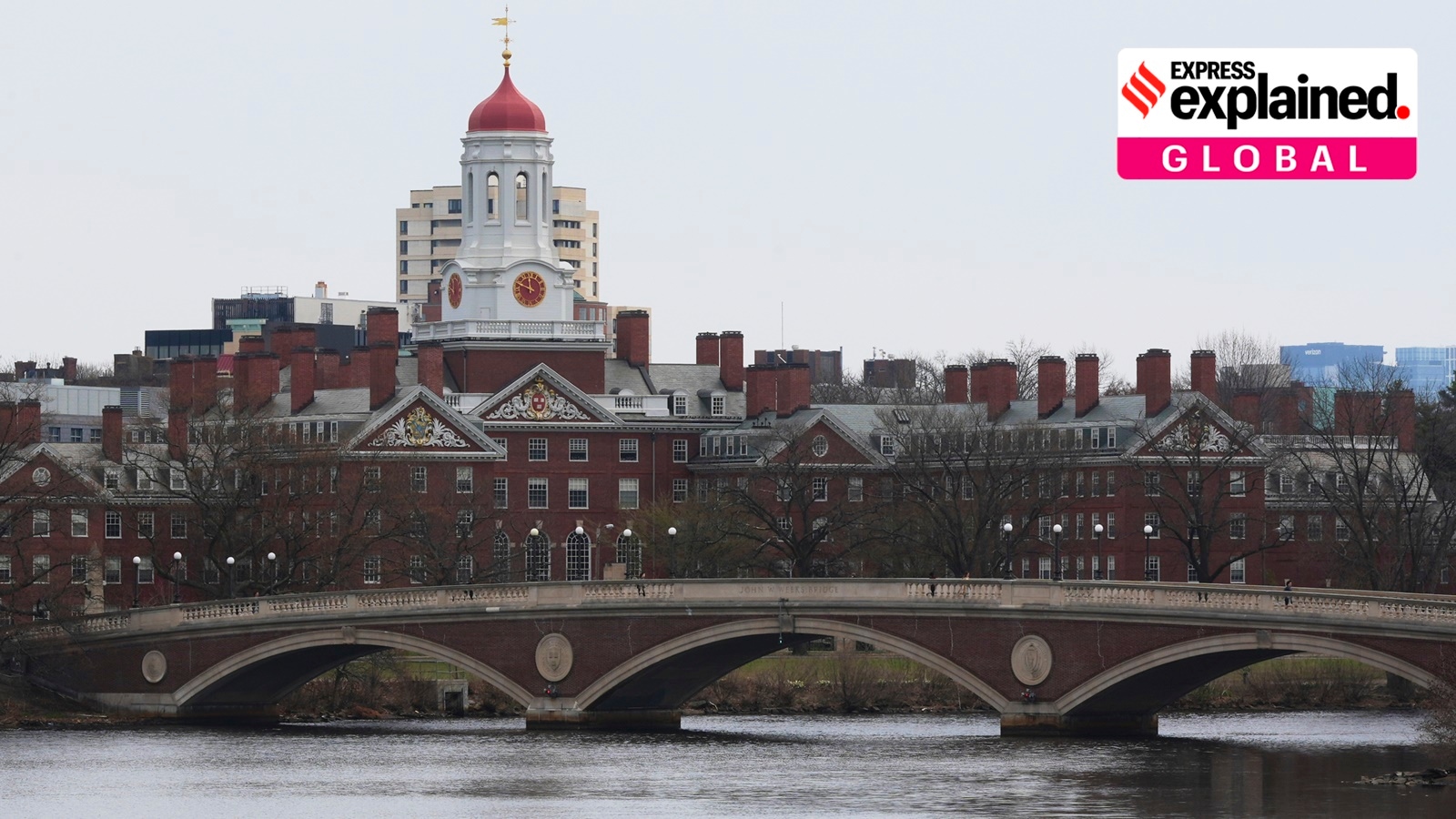 |
|
The decision by the Trump administration to block Harvard University from enrolling international students marks a significant escalation in the ongoing tensions between the administration and institutions of higher education, particularly those perceived as bastions of liberal ideology or harboring dissenting voices. The stated rationale behind this action, as outlined in the Department of Homeland Security (DHS) letter to Harvard, revolves around accusations of an “unsafe” campus environment for Jewish students, the promotion of “pro-Hamas sympathies,” and the implementation of “racial” diversity, equity, and inclusion (DEI) policies. These accusations, coupled with claims of coordination with the Chinese Communist Party, paint a picture of an institution allegedly undermining American values and national security. However, critics argue that these charges are merely a pretext for targeting institutions that challenge the administration's policies and viewpoints, thereby infringing upon academic freedom and the autonomy of universities. The timing of this decision, amidst heightened tensions surrounding the Israel-Hamas conflict and growing scrutiny of university policies regarding free speech and academic freedom, further underscores the politically charged nature of the situation. The move is seen by many as part of a broader effort by the Trump administration to exert control over universities, influencing their admission processes, curriculum, and hiring practices, and punishing those who resist. This interference, critics contend, not only threatens the integrity of academic institutions but also stifles intellectual discourse and diversity of thought. The potential ramifications of this decision extend far beyond Harvard University, potentially impacting the broader landscape of international education in the United States and raising concerns about the future of academic freedom and institutional autonomy. The situation also shines a light on the economic contributions made by international students, as well as the diversity they bring to campuses. The loss of international students could have a ripple effect throughout the academic community, especially to those universities dependent upon the revenue brought in by international students who don’t qualify for federal aid, and who pay higher tuition fees. The long term impact is still to be determined, but this is a situation that will require close monitoring in the days and weeks ahead.
The immediate impact of the DHS's decision on Harvard University is substantial. With international students comprising over 27% of the student body, the loss of their enrollment could lead to significant financial challenges for the university, as international students typically pay higher tuition fees and do not qualify for federal aid. Beyond the financial implications, the absence of international students would diminish the diversity of perspectives and experiences on campus, impacting the quality of education and the intellectual environment. Furthermore, the revocation of Harvard's Student and Exchange Visitor Program (SEVP) certification means that the university would be unable to issue I-20 forms to incoming international students, effectively preventing them from enrolling. Existing international students face uncertainty regarding their legal status, potentially being forced to transfer to other SEVP-certified institutions or risk losing their visas. The disruption to their education and the emotional toll of such a sudden displacement cannot be underestimated. While a federal judge's intervention has temporarily blocked the administration from revoking visas and arresting international students, the long-term implications for those studying at Harvard remain unclear. The university's response to this crisis has been one of defiance and resistance, with Harvard vowing to fight the administration's decision and maintain its commitment to international students and scholars. However, the legal and political battles ahead are likely to be protracted and challenging, requiring significant resources and unwavering support from alumni, donors, and the broader academic community. Harvard's lawsuit against the administration underscores the university's determination to defend its autonomy and academic freedom, setting the stage for a high-stakes legal showdown with potentially far-reaching consequences.
The broader context of the Trump administration's actions against Harvard University reveals a pattern of targeting elite institutions perceived as hostile to its agenda. Similar actions have been taken against other universities, such as Brown University, Cornell University, and Princeton University, often under the guise of combating antisemitism and racism. In March, Columbia University averted a federal funding cut by complying with some of the administration's demands, including overhauling its protest policies and allowing security forces to arrest students on campus. These actions raise concerns about the erosion of academic freedom and the increasing politicization of higher education. Critics argue that the Trump administration is creating an atmosphere of fear and intimidation on campuses, chilling free speech and stifling intellectual inquiry. The administration's attempts to dictate university policies and practices, coupled with the threat of defunding and other punitive measures, represent a significant departure from the traditional relationship between the government and academic institutions. This shift has sparked widespread outrage among academics, students, and civil liberties advocates, who fear that it could lead to a decline in the quality of education and a narrowing of intellectual perspectives. The long-term consequences of these actions are difficult to predict, but they could have a lasting impact on the future of higher education in the United States, potentially undermining its global competitiveness and its role as a beacon of intellectual freedom. The current situation underscores the importance of defending academic freedom and institutional autonomy against political interference, ensuring that universities remain spaces for open inquiry, critical thinking, and the pursuit of knowledge, regardless of political pressure or ideological agendas. The attack on universities is an attack on the very principles upon which the free society has been constructed, and it sets a dangerous precedent for the future.
